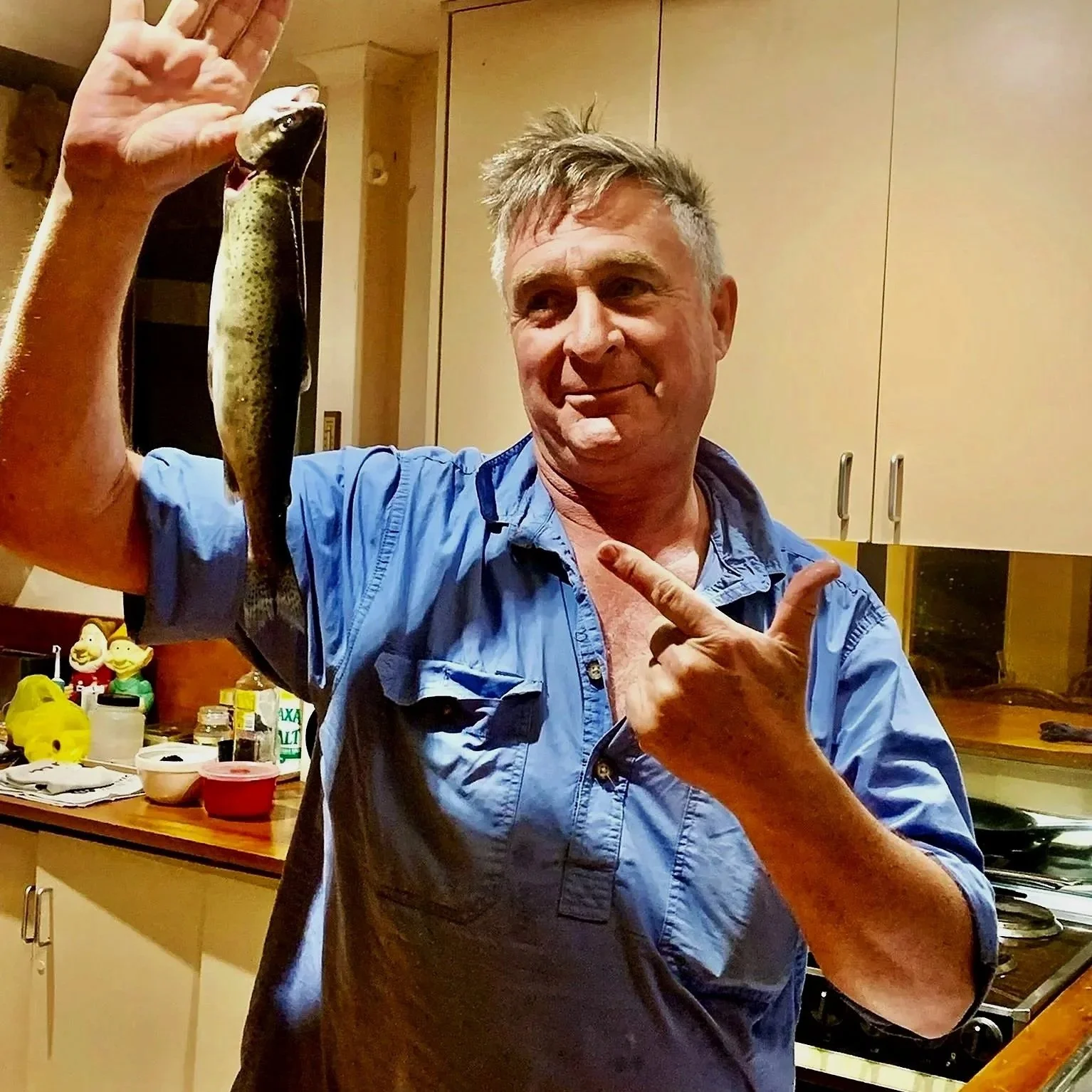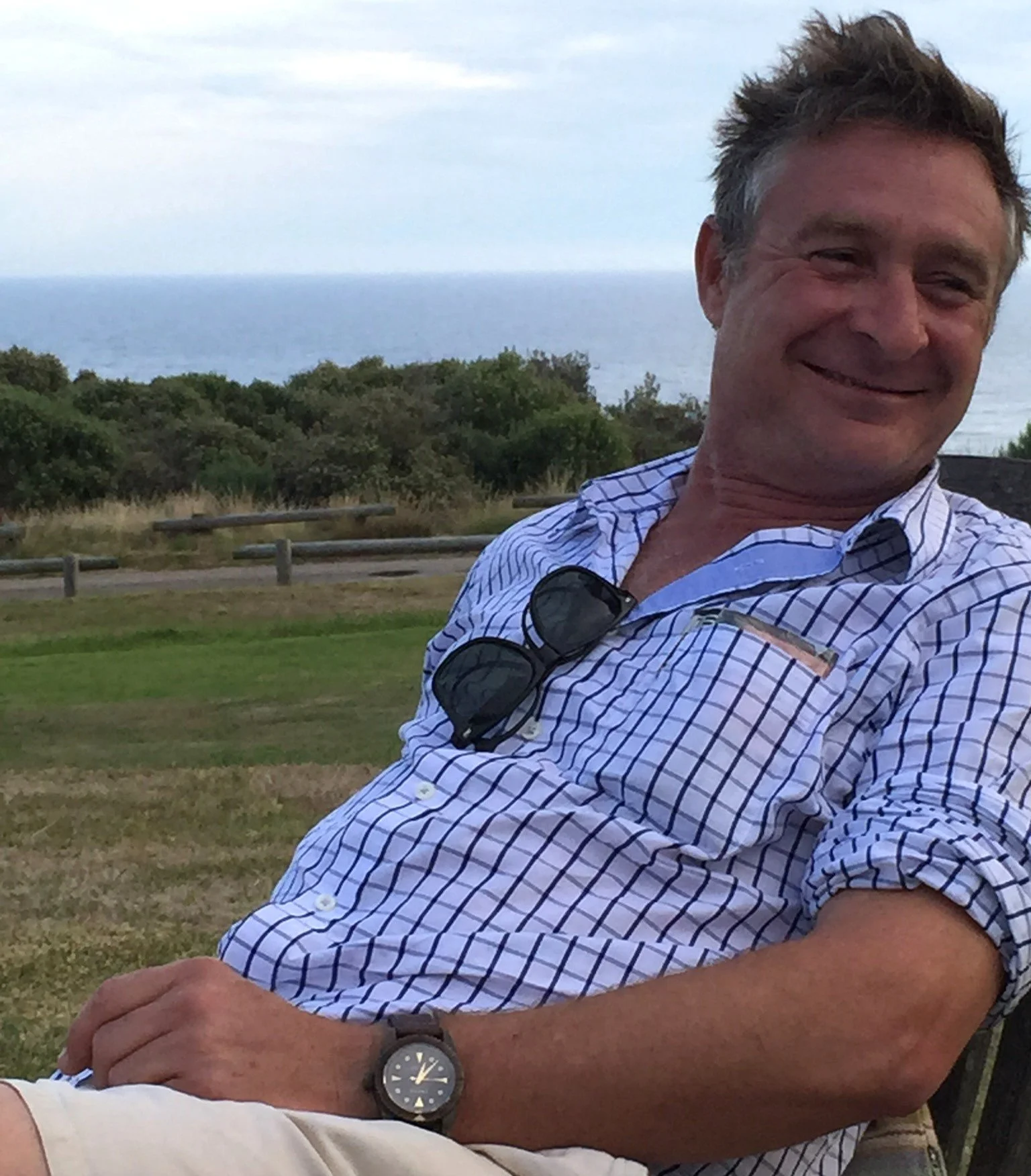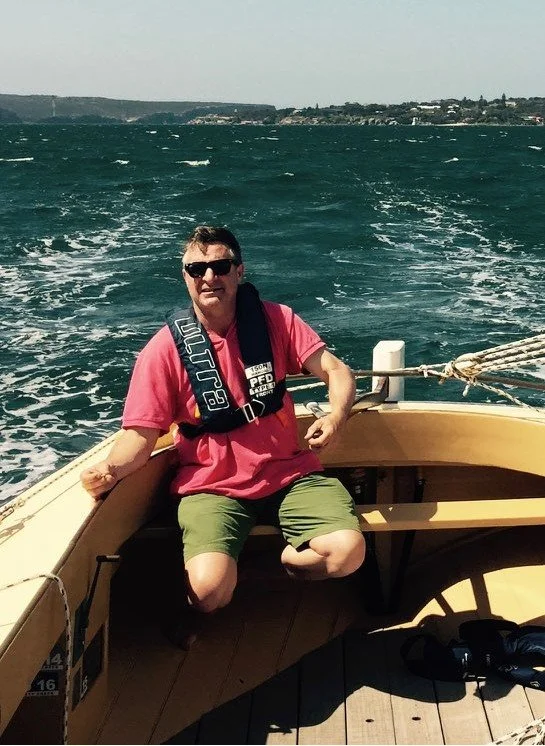The story of Magnus Mansie
By Russell Barrett
Magnus Andrew Kirkpatrick Mansie (you cannot get a name more Scottish than that) was born in Tonbridge Wells in Kent on 18 August 1965. His family migrated to Australia when Magnus was a child. His father had been a surgeon in the Royal Navy and his mother a nurse/social worker.
Upon arriving in Australia, the family moved to Dandenong and then to a small farm in Harkaway where life was idyllic with his two brothers, his sister and the freedom to roam. From there, Magnus gained his love of the outdoors and practical country ways.
He joined the Royal Australian Navy and served in the 1991 Gulf War as a Midshipman and rose to the rank of Lieutenant. But he paid the price later with the onset of post-traumatic stress disorder (PTSD).
After several years, he decided it was not a career path he wished to follow so he started in the film industry and worked on many films including Babe and Japanese Story.
Magnus Mansie and his mother, Sue
Magnus wanted to change the world for the better. When the Howard government decided to send troops to Iraq in 2003, he and another Gulf veteran handed back their war medals of which they were proud, disgusted at the decision to enter a war that was not sanctioned by the United Nations. It was a move that generated considerable media attention.
This would not be his only foray into social and environmental issues.
Magnus was passionate about the Shoreham community.
I met Magnus at a Red Hill Christmas party in 2006. Later that night my cousin Sarah drove me back to Shoreham.
“There is a car following us,” I said to Sarah, “that man [Magnus] is following you.”
“No darls, he’s following you!” she said.
And the rest is history!
Soon after I bought my place in Shoreham. Magnus did what he did best: he planted a garden, built vegetable boxes and a sprinkler system, lit bonfires, and generally made it the beautiful place it is now.
Magnus was passionate about our local community. We both had a lot to do with “Shoreham Secrets,” a fundraiser for the CFA. One year he hid a treasure chest full of “gold” one-dollar coins donated by the Bendigo Bank in the waters off Shoreham. Dressed as a pirate, he led excited children to the beach. The chest was duly retrieved from the ocean floor and the smiles on the faces were unforgettable.
He became a familiar face here, cigarette in hand, car windows down and two Welsh terriers leaning out the window, his two great loves (apart from me).
Sadly, this happy façade masked a man who had a ‘Black Dog,’ the expression Winston Churchill used to describe his own recurring bouts of depression.
Magnus bravely confronted his mental illness head on, never embarrassed or frightened, but quite pragmatic about the demons inside him.
Just last year he led a group called “People Power Company Mornington” and held a huge public meeting to discuss the viability of establishing a community-owned power company in a bid to cut electricity costs on the Peninsula.
But finally, I think, he was unable to cope with the black dog any longer and sadly left us.
Ever since July when Magnus died, people have told me stories of how he had helped other people and also wildlife. Through his own suffering, he understood the suffering of others. If only he had been around for the outpouring of love and kindness that came from the Shoreham and Flinders communities.
We will always remember him as that laughing, smiling, often irreverent, considerate, kind man.
For help with depression please call Lifeline on 131114
For Navy, Army and Air Force personnel, veterans and their families wanting help with mental illness, see Open Arms’ website here.
For more information about research into mental illness see the Black Dog Institute website here.



